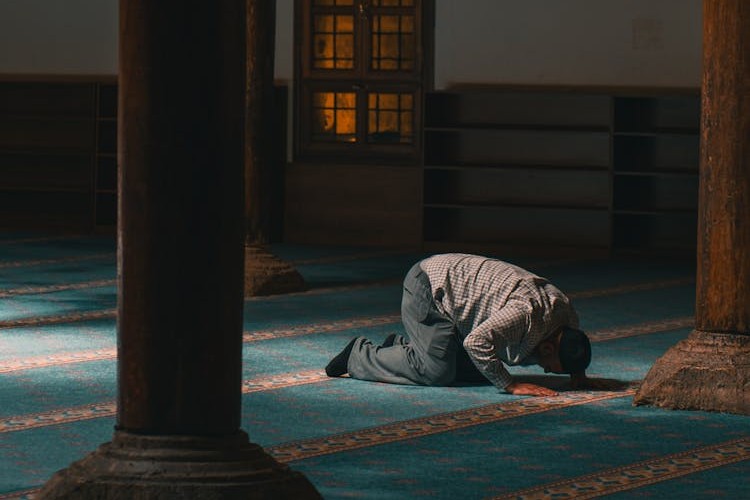Sabil Al-Quran
How to Pray Duha Prayer: Timing, Method & Spiritual Rewards
In the peaceful stillness of the morning, there is a special prayer known for its immense blessings and transformative impact Salat al-Duha. Often overlooked, this Sunnah prayer offers a gateway to spiritual growth, increased gratitude, and deepened connection with Allah.
At Sabil Al-Quran, we guide students not only in Quran recitation and memorization but also in understanding and practicing the beautiful rituals of Islam like Duha prayer.
So, what exactly is Salat al-Duha? Let’s break it down:
What Is Salat al-Duha?
Salat al-Duha is a voluntary prayer offered in the morning hours after sunrise. The word “Duha” refers to the forenoon, a time of brightness that follows the early morning light. This sunnah prayer consists of at least two rakʿahs and was regularly observed by the Prophet Muhammad ﷺ, who also encouraged his companions to perform it.
It is sometimes referred to as the Ishraq prayer, especially when prayed shortly after sunrise, and is also known as the Salat al-Awwabeen, or the prayer of the repentant. Salat al-Duha is considered a confirmed Sunnah (sunnah mu’akkadah). Performing it brings great spiritual reward and blessings, though skipping it is not sinful.
Now you might be wondering:
How exactly is Salat al-Duha performed?
Let’s walk through the steps together…
How To Perform Duha Prayer?
If you’re wondering how to pray Duha prayer, here’s a clear and simple step-by-step guide:
- Intention (Niyyah)
Begin by silently making the intention in your heart to perform Salat al-Duha for the sake of Allah. - Rak‘ahs (Units of Prayer)
You can pray a minimum of 2 rak‘ahs, and it is reported that the Prophet (PBUH) sometimes prayed 4, 6, or even 8 rak‘ahs. There is no fixed upper limit. - Recitation
After reciting Al-Fatihah in each rak‘ah, you may choose any Surah. Many scholars recommend reciting Surah Al-Duha due to its spiritual connection, although it is not obligatory. - Conclude
Complete the prayer like any other: with Tashahhud and Tasleem after the final rak‘ah.
By incorporating this prayer into your mornings, you align with the Sunnah and unlock tremendous spiritual benefits.
Now, you might be asking yourself:
- When should I pray Duha?
- How many rak’ahs should I pray?
- Is there a maximum limit?
- What are the actual benefits?
Let’s answer each of these questions one by one:
When Should You Pray Salat al-Duha?
The time for Salat al-Duha begins about 15 minutes after sunrise and continues until just before the sun reaches its highest point in the sky shortly before the Dhuhr prayer. While it can be prayed at any time within this window, the most virtuous time is mid-morning, when the sun has fully risen and the day begins to grow warm. This time is considered optimal for earning the full reward associated with this special prayer.

When Does the Time for Duha Prayer End?
The Duha prayer should be performed after the sun has fully risen, which is about fifteen minutes after sunrise. The time continues until approximately fifteen minutes before the Dhuhr prayer.
The first fifteen minutes after sunrise and the fifteen minutes before Dhuhr are times during which prayer is discouraged. Therefore, it is best to avoid these periods and pray Duha in the window between them.
How Many Rak’ahs Are in the Duha Prayer?
The Duha prayer, also known as Salat al-Duha or the Forenoon Prayer, is a voluntary act of worship performed during the morning hours. The minimum number of rak’ahs you can offer is two, which is highly recommended due to its simplicity and spiritual reward.
The Prophet Muhammad ﷺ regularly prayed two or four rak’ahs of Duha. He would end each pair of rak’ahs with tasleem, meaning he concluded the prayer with the traditional salutation of peace.
An authentic hadith mentions a unique reward for those who offer four rak’ahs of Duha and four before the noon prayer (Dhuhr or Jumu’ah). The Prophet ﷺ said:
“Whoever prays four rak’ahs in the morning and four before Dhuhr, Allah will build for him a house in Paradise.”
This narration is found in the collection of Al-Tabarani and was verified as authentic by Al-Albani.
What Is the Maximum Number of Rak’ahs?
Scholars have different views on how many rak’ahs can be prayed during Duha:
- Some say the maximum is eight
- Others allow up to twelve
- A third opinion states there is no fixed limit, as long as it remains within the proper time frame
What is the minimum number of Rakat for Duha prayer?
The minimum number of Rak’ahs for the Duha prayer 1 is two. You can choose to offer more based on your time and energy, with common options being four, six, or up to eight Rak’ahs. Each two Rak’ahs are prayed separately with Tasleem at the end, following the practice of the Prophet ﷺ.
Benefits of Duha Prayer
The benefits of Duha prayer are well-documented in hadiths and Islamic scholarship. Here are some of its most profound rewards:
1. A Substitute for Daily Charity
According to a hadith in Sahih Muslim, each joint in your body requires a daily act of charity. Performing two rak‘ahs of Duha prayer fulfills this obligation, making it an act of deep gratitude and self-purification.
2. Sign of the Oft-Repentant
The Prophet (PBUH) described Duha as the prayer of those who frequently return to Allah in repentance. Regular observance of this prayer shows spiritual awareness and humility.
3. Following a Prophetic Tradition
The Prophet (PBUH) advised his companions, including Abu Huraira, to consistently perform Duha prayer. Emulating this habit draws you closer to the Sunnah.
4. Immense Spiritual Rewards
Certain narrations indicate that praying Salat al-Duha could earn rewards equivalent to a complete Hajj and Umrah if performed under sincere circumstances.
5. Forgiveness of Sins
The Prophet (PBUH) said:
“Whoever regularly prays Duha, his sins will be forgiven even if they are like the foam of the sea.” (Tirmidhi)
Hadith About the Duha Prayer
The Duha prayer is mentioned in several authentic hadiths that highlight its spiritual value and daily reward. The Prophet Muhammad ﷺ instructed some of his companions to remain consistent in three specific deeds: praying two rak’ahs of Duha, performing Witr before sleep, and fasting three days of each month. This shows the importance of making Duha a regular part of one’s daily routine, especially since two rak’ahs are simple and easy to maintain.
The Prophet ﷺ also referred to Duha as “the prayer of the penitent,” and described its ideal time as when the sun becomes hot and the day is well underway, symbolizing a sincere return to Allah through good deeds. In another powerful hadith, the Prophet ﷺ taught that every joint in the human body requires a daily act of charity, and that saying phrases like Subhan Allah or smiling at someone counts as charity. Then he concluded by saying that two rak’ahs of Duha fulfill all of these acts, making it a complete and rewarding form of daily sadaqah.
Ready to Deepen Your Worship?
At Sabil Al-Quran, we provide structured online Quran programs in the USA tailored for learners across the globe. Whether you’re looking to refine your tajweed, memorize the Quran, or start with basic recitation, we have the right course for you.
- Learn with expert teachers via our Quran Recitation Course
- Memorize with ease in our Quran Memorization Course
- Master pronunciation with our Tajweed Rules Course
Conclusion
Incorporating Salat al-Duha into your routine isn’t just a spiritual boost, it’s a path to gratitude, forgiveness, and closeness to Allah. Understanding what is Duha prayer, its timing, method, and rewards equips you to embrace it wholeheartedly.
Take a step closer to the Sunnah. Experience the beauty of the forenoon prayer with intention, sincerity, and knowledge. And remember every step toward Allah brings countless steps of mercy in return.
FAQ: How to Perform Duha Prayer?
How many Rak‘ahs is the Duha prayer?
Duha prayer is a Sunnah prayer offered from about 15 minutes after sunrise until just before Dhuhr. It consists of a minimum of two rak‘ahs and can be prayed in sets of two, up to twelve rak‘ahs. It is usually prayed individually, but it may also be performed in congregation if desired.
Which Surahs should be recited in Duha prayer?
There is no specific Surah required for Duha prayer. After reciting Al-Fatihah in each rak‘ah, you may recite any short Surah or verses from the Qur’an. Many prefer Surah Al-Duha or Surah Al-Asr, but you’re free to choose what you’re most comfortable with.
Is there a specific dua for Duha prayer?
There is no mandatory dua, but a well-known supplication associated with Duha is:
“O Allah, the brightness of the morning is from You, the beauty is Yours, the strength is Yours, the power is Yours, and the protection is Yours…”
You can also make any personal dua after the prayer, as it’s a blessed time for supplication.


